Since the COVID-19 pandemic began in 2020, small group (as per national guidelines) cleanups have been suggested to anyone hoping to conduct coastal cleanups. With the infectivity of the Delta strain, a return to large scale cleanups are unlikely for the near future.
Still, what our coasts really require are year-round attention. So sustained independent action is a timely change for all to consider, even when things improve.
So here are the guidelines:
I – Safe, independent and sustained small group stewardship
- Independent action – conduct coastal cleanups independently in masked and distanced groups of as per prevailing government guidelines. Supply yourself with a pair of tongs, gloves and a few trash bags per session hit the beach.
- Sustained stewardship – organisations keen to involve many people should consider adopting a beach at which small groups can be deployed over several weeks or months. Share the experience and appreciate the larger experiences of nature offered at your adopted site.
- Which tide? Well, any time is suitable as trash accumulates on the high shore but a low tide will expose partially buried trash on the inter-tidal shore.
- Monsoon trash – East Coast Park is burdened with trash load particularly during second half of the year by the South West Monsoon from June to September. The north-east monsoon strands more trash to northern shores in the Johor Straits such as Changi and Pasir Ris Park.
- Be safe – consult our safety guidelines for participants on the ICCS webpage (link).
- Stash your trash – ensure your trash is properly tied up and placed next to a trash bin, and not left on the beach.
- Be part of a community – the ground-up movement East Coast Beach Plan arose during the pandemic, and you can join the supportive 3,000 members (and counting) on the Telegram channel.
If you meet others on the beach, enjoy the great company of fellow environmental stewards, take a photo and tag #coastalcleanup and the local #coastalcleanupsg on Instagram and gladden hearts of environmental stewards here and around the world!
International Coastal Cleanup & the Clean Swell app – contribute data directly to Ocean Conservancy’s global movement, which Singapore has been part of since 1992.
- This annual data-gathering exercise which works towards Trash Free Seas involves categorising, counting and weighing marine trash, in addition to clearing it.
- Download the ICC Singapore Data Card here.
- Originally scheduled on the 3rd Saturday of every September, you can conduct the exercise at any time of the year. They have carefully revised the guidelines with the pandemic in mind, which is useful.
- Use the Clean Swell app (available on Apple Store and Google Play) to upload your data directly to the Ocean Conservancy’s global database: they consolidate global data to take action for the planet, so this is useful.
- You can use the app to upload uncategorised data too; e.g. total number of trash bags and weight of trash removed. Upload this the same day, or else indicate the date in the remarks if updating past events.
- [2023 update: relax, it’s in metric now!] Note that the Clean Swell app accepts data for weight of trash in pounds, so be sure to convert your weight in kilograms to pounds!
Organisations registering cleanups in Singapore – Organiser’s can register with the National Environment Agency’s Public Hygiene Council for the “Clean Singapore Learning Trail (Beaches and Parks)”
- If you have a plan to deploy several distanced groups over a park, please register with the NEA’s Public Hygiene Council at https://www.publichygienecouncil.sg/beachcleanup (they have lovely new organiser guidelines document too)!
- Please register three weeks in advance to help them coordinate cleanups.
- They offer several beach sites (nine sites in 2023), with maps for organisers to refer to.
- Register and identify yourself as a part of a network of concerned individuals and organisations.
We are heartened by the interest, motivation and perseverance to tackle the problem of marine trash on our shores. Awareness of the issues has heightened and many new small groups have sprung up to take action – regularly and persistently! That has certainly been a heartening outcome of this pandemic.
During the pandemic, the ICCS Otters have conducted masked, small-group mangrove cleanups, with rostering and safe distancing measures. We were glad we could still execute our National Day mangrove cleanups at Lim Chu Kang, albeit in a much smaller scale. And we have been planting and maintaining a coastal forest ecosystem at Kranji Coastal Nature Park.
Every action still counts – conduct a cleanup when you can, and join the One Million Trees movement to experience the therapeutic effect of nature. Keep well everyone!
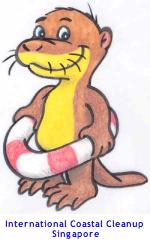
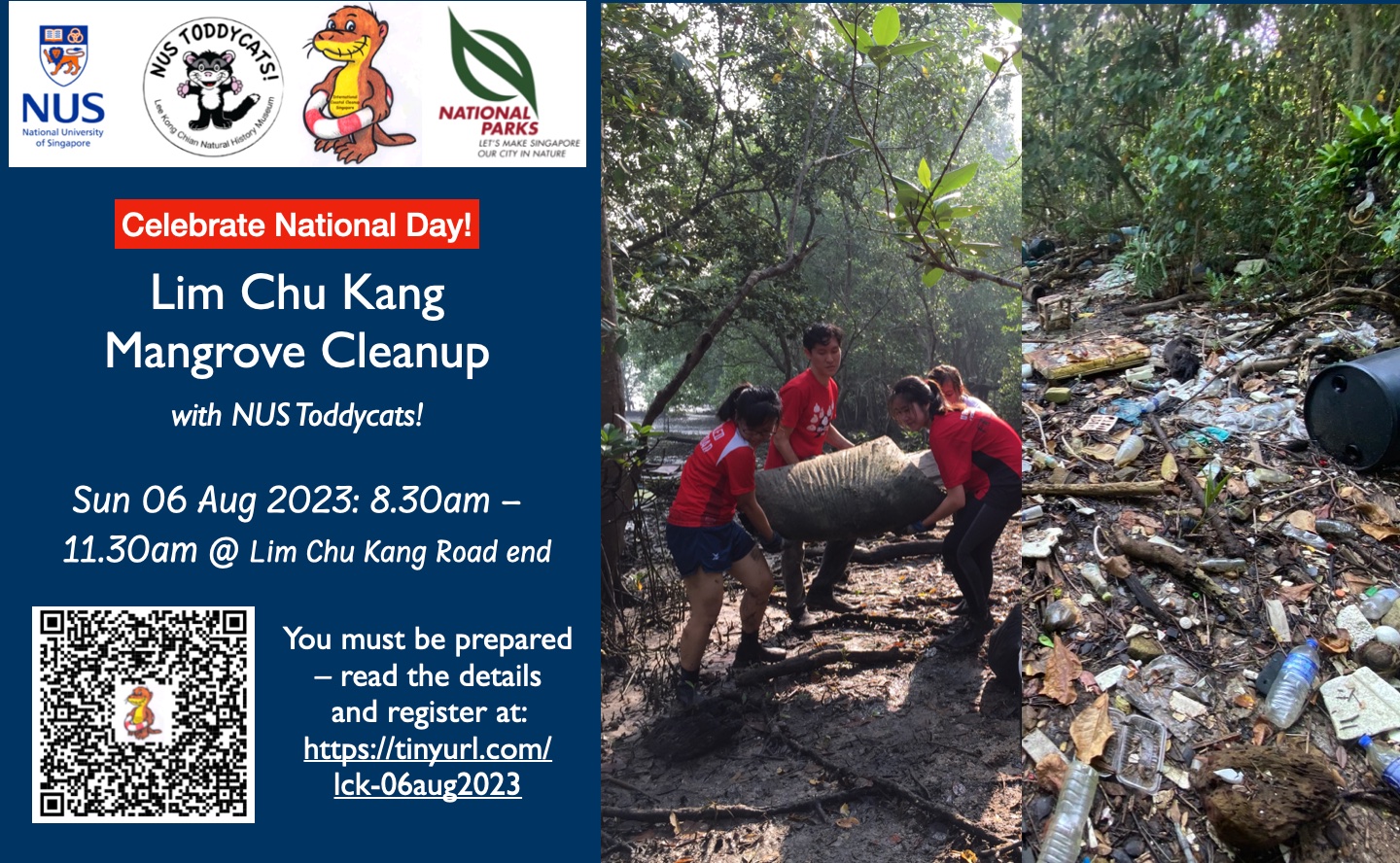
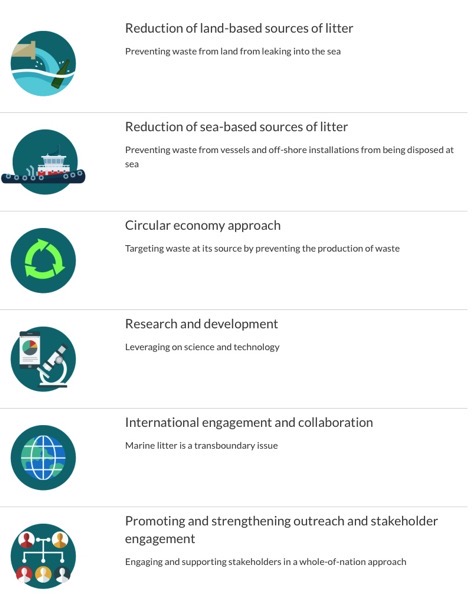
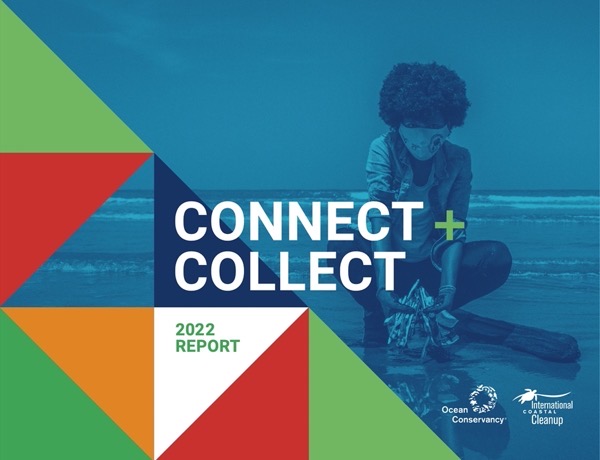
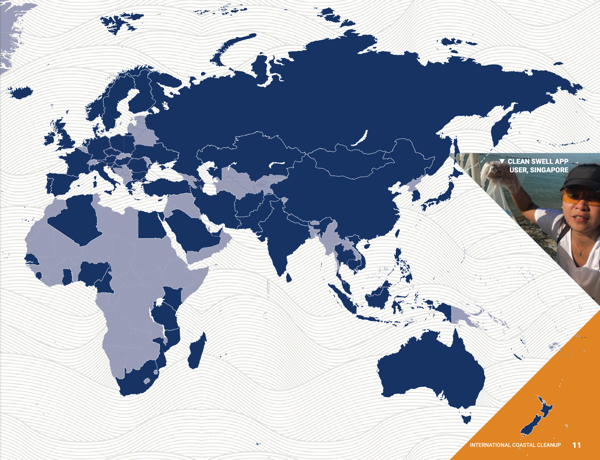

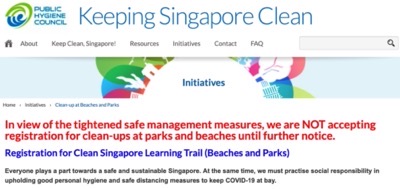




 Mr Syam Lal Sadanandan, Mr Phua Huat Chan, Otterman & Keterina Chong
Mr Syam Lal Sadanandan, Mr Phua Huat Chan, Otterman & Keterina Chong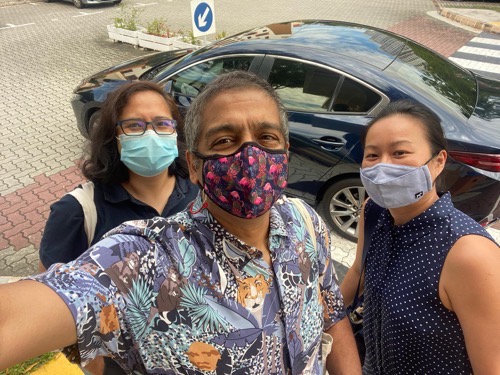 ICC Otters, Airani S, N Sivasothi & Keterina Chong
ICC Otters, Airani S, N Sivasothi & Keterina Chong
